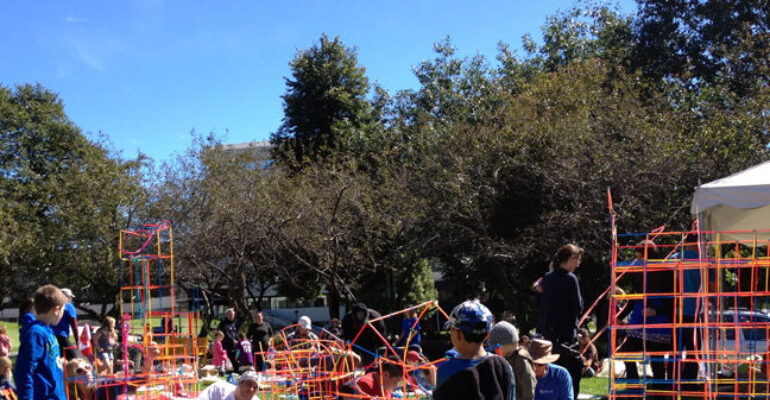 13 Jul 2021
13 Jul 2021
National PlayDay: Boosting Children’s Health and Well-being
Research and practice clearly shows that play is fundamental for children’s health and well-being. Unfortunately, there continue to be barriers to giving children the opportunity for exploring and learning through free, self-directed play. The International Play Association Canada (IPA Canada) is working to promote the child’s right to play. In this blog, hear from Pierre Harrison, past president of IPA Canada as he discusses why play is so important and how participating in National PlayDay in August can help bring free play back into children’s everyday lives.
Do you remember your parents telling you, as you ran out the door, to come back home when you were hungry or when the street lights come on? If not, then maybe I am showing my age!
Play is the essence of childhood! And when children are given the time, space and freedom to engage in self-directed play, they nurture their well-being and acquire life-long skills. However, not every child has the opportunity to delve into spontaneous play. American psychologist Peter Gray has been looking at how children interact with their environments through their self-directed play and has noted that this type of free play has been steadily decreasing since the 50’s. At the same time, anxiety, depression and suicide have been increasing in children and youth (Gray, 2011). In Ontario, the Centre for Addiction and Mental Health (CAMH) reports that amongst students from Grade 7 to 12, over one-third (39 per cent) indicate a moderate-to-serious level of psychological distress (symptoms of anxiety and depression) (CAMH, 2017).
There are many barriers to children’s play. The top three are a lack of time, space and understanding by adults of play’s importance. Our society has become so focused on safety and academic achievement that we have lost sight of the overall well-being of our children. Adults hyper-structure and hyper-control children’s time in order to keep them safe and to prepare them for the future. By doing so, we actually do the opposite.
It is well-established through research and practice that play is essential to a child’s physical health and emotional well-being. Play stimulates all aspects of a child’s development, i.e., the physical, social, cognitive, emotional and spiritual aspects. It is through their self-directed play that children, armed with curiosity and a spirit of inquiry, explore their physical and social environments and construct knowledge about the world around them. It is through their various types of play that children prepare themselves for life: when they are allowed to explore risk, they learn to identify and evaluate situations in order to take risks that are appropriate to their abilities; when they play with others, they learn to collaborate and negotiate social interactions; when they are free to explore various materials and tools they nurture their imagination, creativity and develop their problem-solving skills. When children are free to explore the world around them, they will face stress and difficult situations which will allow them to acquire coping skills. This nurtures children’s resilience and self-confidence which will help them navigate all of life’s challenges.
The IPA Canada has been promoting this type of child-structured, free play for decades. Our National PlayDay initiative, which we rebooted in 2018, aspires to shine the spotlight on play in order to build awareness for its importance in children’s healthy development. IPA Canada has declared the first Wednesday of August as National PlayDay and encourages municipalities, community groups and individuals to host a play day on that day or into the weekend to spark conversations around the fundamental necessity of play. For more information about play and National PlayDay, please visit our website where you can download our free PlayDay manual.
This summer, we invite you to join us in prioritizing play and nurturing children’s well-being!
Pierre Harrison, Past President, IPA Canada
International Play Association: Promoting the Child’s Right to Play




Families Canada